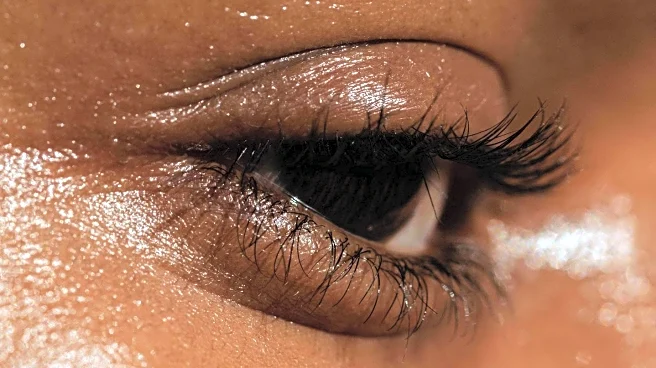What's Happening?
Hydroquinone, a topical skin-lightening agent, remains a controversial yet effective treatment for hyperpigmentation. Despite being banned in the European Union, Australia, and Japan, and no longer available over-the-counter in the U.S., dermatologists continue to prescribe it for conditions like melasma and dark spots. Experts emphasize its efficacy but caution against potential risks such as ochronosis, a pigmentation disorder. Proper usage under medical supervision is crucial to mitigate risks.
Why It's Important?
The ongoing debate over hydroquinone underscores the complexities of balancing efficacy and safety in dermatological treatments. Its effectiveness in treating stubborn hyperpigmentation makes it a valuable tool for dermatologists, but concerns about side effects necessitate careful management. This situation highlights the importance of informed medical guidance in skincare, influencing public health policies and consumer awareness regarding cosmetic treatments.
What's Next?
Patients seeking hydroquinone treatment must consult with dermatologists to obtain prescriptions and develop personalized usage plans. Monitoring and adjusting treatment protocols are essential to prevent adverse effects. The dermatological community may continue to advocate for its controlled use, potentially influencing regulatory decisions and public perception of skin-lightening agents.










